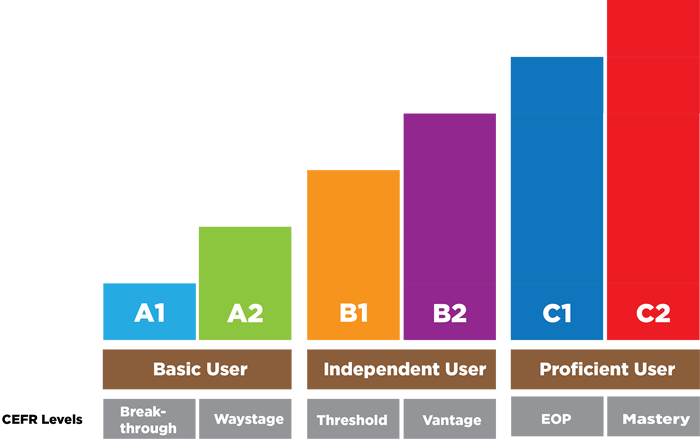Germany is a top choice for international students, known for high-quality education, cutting-edge research, and affordable living. Studying in Germany offers not only excellent academics but also the chance to immerse yourself in a vibrant culture. From tuition-free universities to strong job prospects, here are 10 reasons why studying in Germany can be the perfect step toward your future success!
1. No Tuition Fees at Public Universities
One of the most appealing aspects of studying in Germany is the lack of tuition fees at public universities for both domestic and international students.
This policy, driven by the German government’s commitment to accessible education, allows students to pursue higher education without the financial burden of high tuition costs.
Students only pay a small semester contribution, ranging from 100-350 EUR (approximately ₹8,000-₹30,000), which covers administrative fees and public transportation.
In comparison, tuition in countries like the U.S. and Singapore can reach up to 10-12 lakh INR per month, making Germany a financially viable option for students worldwide.
Example: The Technical University of Munich (TUM), ranked #49 in QS World University Rankings 2024, is renowned for its innovative research and global partnerships, offering excellent academic and career opportunities.

2. Flexible Course Selection
Several German universities offer flexible course selection that allows students to explore interdisciplinary subjects alongside their primary field of study. Some of the top universities with such options include:
1. Technical University of Munich (TUM)
Mechanical Engineering + Philosophy: Students can pursue a degree in mechanical engineering while taking elective courses in philosophy, exploring the ethical implications of modern technologies like AI and robotics.

2. Ludwig Maximilian University of Munich (LMU)
Physics + History: LMU offers students the opportunity to combine their studies in physics with a historical perspective, learning about the evolution of scientific ideas and the impact of key discoveries on society.

3. University of Heidelberg
Medical Sciences + Ethics: Students can study medical sciences while also taking ethics courses, gaining insights into the ethical dilemmas faced in medical practice, particularly in fields like genetics or end-of-life care.

4. University of Freiburg
Mechanical Engineering + Sociology: Freiburg allows students to blend mechanical engineering with sociology, examining how engineering innovations impact social structures and the environment.

5. RWTH Aachen University
Engineering + Entrepreneurship: RWTH Aachen provides students the chance to combine engineering with entrepreneurship courses, equipping them with the skills to start their own tech ventures or bring innovations to the market.
3. Abundant Job Opportunities
Germany’s robust economy, ranking as the fourth-largest globally, provides excellent job prospects, especially for STEM graduates.
Renowned for its expertise in automotive and mechanical engineering, Germany is home to major companies like BMW, Mercedes-Benz, Audi, and Porsche.

Beyond the automotive sector, Germany leads in renewable energy, particularly solar power, as well as the chemical industry, with companies such as Siemens Gamesa, SMA Solar Technology, EnBW, BASF, Bayer, and Evonik Industries.

Furthermore, there is significant demand for professionals in cutting-edge fields like artificial intelligence, data science, and machine learning. Research positions are abundant, with many universities and private institutions engaged in extensive R&D activities, creating a wide range of career paths for graduates.
4. Favorable Post-Graduation Visa Options
Germany offers an accessible pathway to residency for international students, unlike countries with complex visa systems. Upon graduation, students can apply for an 18-month post-study work visa to search for employment.
Once they secure a job, they are eligible for either a German Residence Permit or an EU Blue Card, granting them permission to work in Germany or other European Union countries.

After two years of employment, graduates can apply for a permanent residence permit, and after eight years, they may be eligible for citizenship.
This straightforward process makes Germany an attractive option for students who wish to settle long-term, especially compared to the lengthy and uncertain residency processes in the U.S. or Singapore.
5. English-Taught Programs with Optional German
While most university programs in Germany are available in English, students are encouraged to learn German to enhance their experience.
Learning the local language can be advantageous for everyday interactions and helps students integrate better into the community. German proficiency is often recommended for job placements, with B1 level considered ideal.
This proficiency allows students to navigate social and professional interactions more comfortably, ultimately boosting their employability within Germany.
However, language isn’t a barrier for initial studies, as English remains the primary language for most academic programs.
Have a look at the different levels of German language given below:

6. Affordable Living Costs
The cost of living in Germany is relatively low compared to other European countries and the U.S., making it an affordable option for international students.
German law requires students to deposit 10,332 EUR in a blocked account (around ₹9 lakh per year) as proof of financial capability. This deposit covers living expenses, with monthly costs averaging around 861 EUR (about ₹75,000).
Germany’s affordability, combined with no tuition fees at public universities, allows students to manage expenses effectively.
Cities like Berlin and Munich may have slightly higher living costs, but smaller cities offer even more affordable options, giving students flexibility based on their budget.
To know more about this in detail, check out the video below:
7. Scholarships for Living Expenses
Germany offers a variety of scholarships specifically designed to help international students cover living expenses. Programs like the Erasmus Mundus Scholarship and the EIT Digital Master School provide stipends to support students during their studies.
Numerous other scholarships are available based on merit and field of study, reducing financial stress for students. In contrast, scholarships are more limited in other countries, with high competition and stringent eligibility criteria.
Germany’s generous scholarship programs give students a significant advantage, making it an attractive destination for those who require financial support.
To know more about Eramus Mundus Scholarship, check out the video below:
8. International Exposure and Diverse Student Community
Germany’s academic environment is enriched by a culturally diverse student population from around the world. This international exposure allows students to collaborate with peers from various backgrounds in group projects, cultural activities, and social events.
Such an environment promotes intercultural understanding, communication skills, and a global mindset—all valuable skills in today’s interconnected world.
Many German cities are vibrant and welcoming to international students, and learning German can further enhance cultural integration. This multicultural setting provides students with invaluable networking opportunities and lasting friendships.
The below image shows the diversity of international students in Germany:

9. Safe and Secure Environment
Germany is known for its commitment to public safety, ranking as one of the safest countries in the world. This sense of security extends to cities and towns, with low crime rates and efficient law enforcement ensuring peace of mind for students.
The country was even ranked the second-safest globally during the COVID-19 pandemic due to its effective health protocols and public safety measures. Unlike some countries with higher crime rates, Germany offers a safe, supportive environment that allows students to focus on their studies and enjoy their time abroad.
10. Easy Travel Access Across Europe
Germany’s central location within Europe makes it a fantastic base for students who love to travel. With efficient and affordable transportation options, students can explore iconic German cities like Berlin, Munich, and Frankfurt.

Beyond Germany, students can easily visit neighboring countries such as France, the Netherlands, Switzerland, and Austria. Many students take advantage of semester breaks and holidays to experience the diverse cultures, languages, and landscapes Europe has to offer.
For those with a passion for travel, studying in Germany provides the perfect opportunity to explore Europe affordably and conveniently.
If you’re considering studying in Germany, these 10 reasons highlight why it’s a fantastic option for a fulfilling, affordable, and career-boosting educational experience.
If you want to learn how to write your admission essays, you can sign up for our course: Write your Way to Study Abroad. However, if you want to get your statement of purpose reviewed, you can sign up for our reviee program: SOP Review Program.
If you have any queries, feel free to comment below and we will respond at the earliest!




